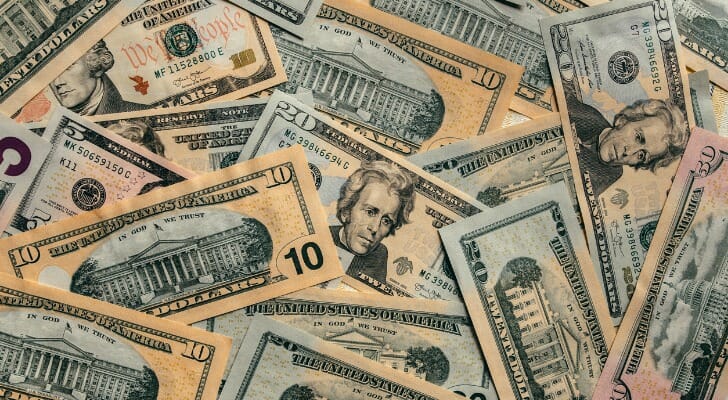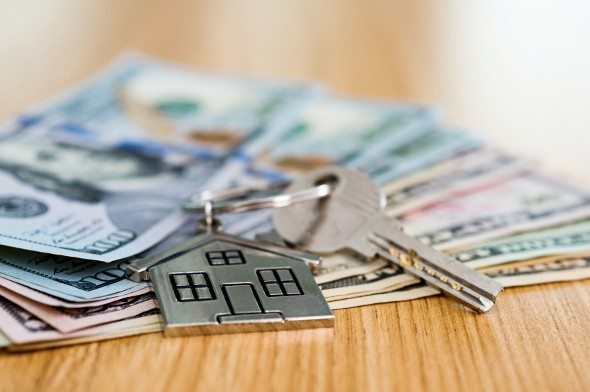Mortgages can cause a lot of headaches, but for many people they are the only route to a new home. For a select few, though, buying a home outright with cash might be possible. Regardless, having cash on hand to close any deal is often a must. A down payment will be the most difficult to cover, as these are often around 20% of the home’s value. So if you’re gearing up to buy a house anytime soon, it’s a good idea to find out what kinds of cash reserves are required and how you’ll use them. Before you make any final decisions, consider discussing your financial situation with a financial advisor.
Covering a Down Payment
Let’s say you’re taking the mortgage route to buying a home. The biggest and most important expense to worry about is your down payment.
If you’re applying for a conventional mortgage ($647,200 or less in 2022), the general rule of thumb is to make a down payment of 20% of the purchase price. So for a $250,000 home, you’d need to make at least a $50,000 down payment.
The down payment requirements are a little different if you’re applying for a different type of loan, such as a VA, USDA or FHA loan. With the first two, you might not need to put any money down at all. An FHA loan requires a down payment equal to 3.5% of the purchase price. This makes it a great choice for anyone short on cash.
Generally, you’ll need to have your down payment in a separate savings or checking account. If a family member is giving the money to you as a gift, it’s a good idea to let it sit in your account for a couple of months. It’s also important to have detailed documentation showing where the money came from in case the lender asks for proof that the down payment is a gift.
Paying for Closing Costs
Closing costs refer to all of the expenses that are due by the time you sign the final mortgage paperwork. That includes elements like attorney’s fees, credit check fees and loan origination costs.
It’s not unusual for closing costs to run anywhere from 2% to 5% of the purchase price. So, if we’re still using the same $250,000 home as an example, you’d need between $5,000 and $12,500 to close, assuming the seller isn’t giving you any credit towards those costs. Add in that $50,000 down payment, and we’re now up to roughly $60,000 that you’ll need to have tucked away in savings.
Other Costs to Know

Prepaid expenses are costs that may have to be paid out-of-pocket prior to the closing. An appraisal, for example, is often paid up front. Your lender may also require you to pay for home inspections before the loan comes to fruition.
If you’re rolling your homeowner’s insurance and property taxes into your mortgage payment, you’ll also need to have enough money to cover those costs. Between everything, including the appraisal and the inspections, this can easily add another $5,000 onto your cash needs.
How Much Cash Will I Need in Total?
Using the example of the hypothetical $250,000 home, here’s a breakdown of the costs you’d need to cover with cash:
Breakdown of Your Possible Cash Expenses
| Home Value | $250,000 |
| Down Payment | $50,000 |
| Closing Costs | $5,000 – $12,500 |
| Appraisals and Home Inspections | $5,000 (approx.) |
| Total Cash Cost | $60,000 – $67,500 |
Some people may want to forgo the mortgage route and pay for a home entirely with cash. Like any other financial decision, though, there are pros and cons to doing so.
Benefits of Buying a House Outright With Cash
There are many benefits to completing a home purchase with cash if it’s within your means. By doing this, you cut out the middleman (the bank) and take full control of your situation. You’ll avoid any and all mortgage payments, which will save you on interest charges.
The home buying process typically features back-and-forth offers between buyers and sellers. If you pay cash, though, your offers will understandably hold a lot more power. As a seller, it would be difficult to not accept any offer that bypasses the bank, and therefore many of its fees, entirely.
Furthermore, by owning 100% of your home from the get-go, you protect yourself from times of financial strife. Because a bank holds no equity in your home, the possibility of a foreclosure is all but gone. If money gets tight at any point, you can also tap into your equity.
Drawbacks of Buying a House Outright With Cash
One of the premier issues with paying cash for a home is that you’ll miss out on the mortgage interest deduction. This tax perk lets you deduct what you pay in mortgage interest, so long as your loan is $750,000 or less. Although this doesn’t take the sting out of paying interest, it can be a big help on your tax return.
No matter how much money you have, an outright home purchase will take a significant chunk out of your savings. In turn, you’ll lose liquidity, which weakens your ability to recover from a financial emergency.
Bottom Line

Regardless of the method you use to pay for your new home, it’s a very personal decision. So make sure you do ample research about which decision works best for you. To do this accurately, you may want to do a deep dive into your monthly finances. This may help you see what kind of cash you’d need to make a mortgage feasible. Again, don’t forget to include outside costs such as closing costs, paperwork fees, origination charges and more.
Tips for Buying a Home
- In addition to paying off your debts and creating a monthly budget, you’ll also want talk to a financial advisor. A financial advisor can help you figure out how buying a home fits into your larger financial plan. This will make it so your other financial goals, like saving for retirement, don’t fall to the wayside. Finding a qualified financial advisor doesn’t have to be hard. SmartAsset’s free tool matches you with up to three financial advisors who serve your area, and you can interview your advisor matches at no cost to decide which one is right for you. If you’re ready to find an advisor who can help you achieve your financial goals, get started now.
- First figure out how much house you can afford. Most experts recommend keeping the cost of your home (including property taxes and upkeep) below 30% of your net income. By doing this, you can ensure you also stay on top of your other financial goals, like saving for retirement.
Photo credit: ©iStock.com/baona, ©iStock.com/Susan Chiang, ©iStock.com/MarioGuti
